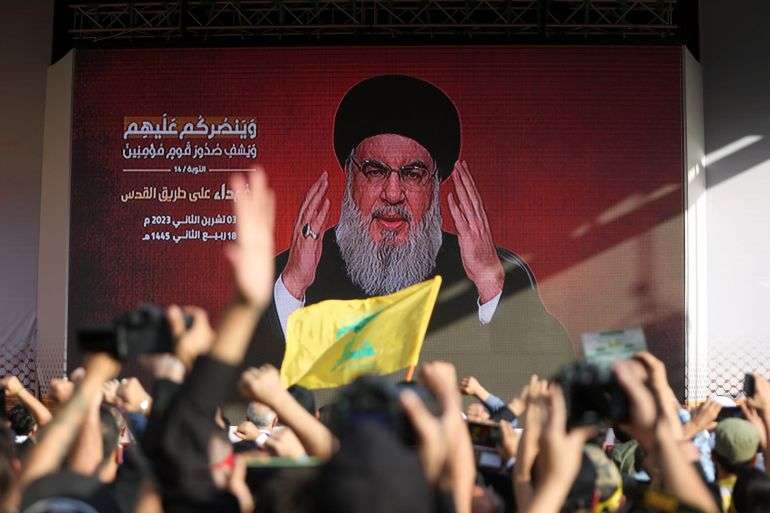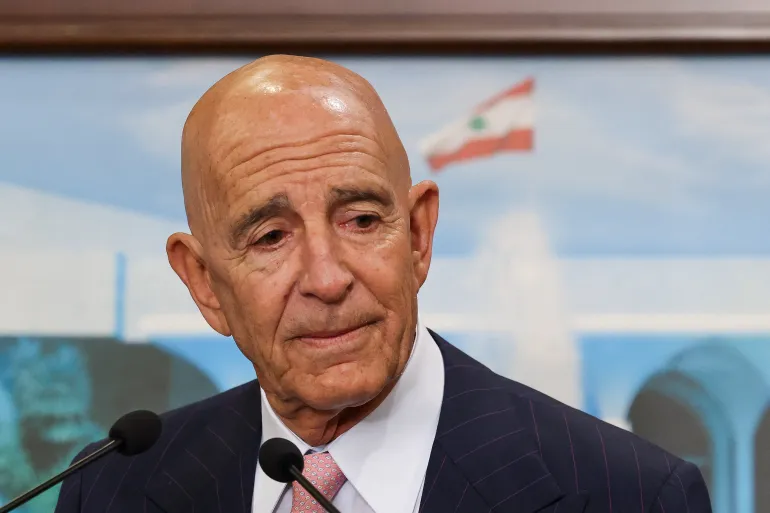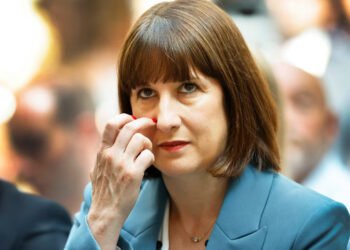US Envoy, Tom Barrack has said that Lebanon has agreed to present a plan aimed at persuading Hezbollah to disarm, and Israel will submit a corresponding framework for its military withdrawal.
Speaking on Tuesday, August 26, 2025, after talks with President Joseph Aoun in Beirut, Barrack said that the plan would not involve military coercion but would focus on efforts to encourage Hezbollah to surrender its weapons.
“The Lebanese army and government are not talking about going to war. They are talking about how to convince Hezbollah to give up those arms.”
Tom Barrack
While no formal proposals have been exchanged, Barrack said that verbal commitments from both sides suggested a narrowing path towards implementation.
Lebanese Prime Minister, Nawaf Salam stated that Lebanon had embarked on an irreversible path to place all weapons under state control, with the army due to present a comprehensive plan by next week.
Earlier this month, Lebanon’s cabinet approved the “objectives” of a US proposal for “ensuring that the possession of weapons is restricted solely to the state”, despite Hezbollah rejecting the decision and calling it a “march in humiliation” and surrender to Israel and the US.
The Lebanese armed group has repeatedly made clear it has no intention of doing so while Israel continues its attacks on the country and occupies parts of the south.
Speaking to journalists at Lebanon’s presidential palace in Baabda on Tuesday, US Envoy, Morgan Ortagus said that Lebanese authorities must put into “action” their decision to disarm Hezbollah.
“Every step that the Lebanese government takes, we will encourage the Israeli government to make the same step.”
Morgan Ortagus
Hezbollah Chief Naim Qassem has refused to give up the group’s weapons. In a speech aired on Monday, Qassem criticised the government’s decision to disarm the group and urged officials to reverse it, saying pulling back “would be a virtue.”
The armed group has long been the sole resistance to Israeli aggression against Lebanon.
However, it emerged badly weakened from last year’s war with Israel, with the assassination of senior leaders, including former Chief Hassan Nasrallah, thousands of its fighters and Lebanese civilians killed, and tens of thousands of the Shia and other communities displaced from their destroyed homes.

He also warned that Lebanon’s sovereignty could only be achieved by ending Israeli “aggression” and said the Lebanese government must first ensure Israel complies with a November 2024 ceasefire agreement – by which Israel should withdraw its troops from Lebanese territory – before talks on a national defence strategy can take place.
Israel has violated the November truce on a near-daily basis.
Israel signalled on Monday that it would scale back its military presence in southern Lebanon if Lebanon’s armed forces took action to disarm the group.
Barrack, who met Israeli Prime Minister Benjamin Netanyahu on Sunday, described that development as “historic.”
“What Israel has now said is: we don’t want to occupy Lebanon. We’re happy to withdraw from Lebanon, and we will meet those withdrawal expectations with our plan as soon as we see what is the plan to actually disarm Hezbollah.”
Tom Barrack
An additional impediment was the fact that the ceasefire agreement states that Hezbollah must disarm south of the Litani River, some 30km (20 miles) from the Israeli border, rather than in the whole country.
Disarmament Plan Must Address Economic Impact On Hezbollah
Barrack stressed that any disarmament initiative must address the economic impact on tens of thousands of Hezbollah fighters and their families, many of whom purportedly rely on Iranian funding.
“If we’re asking a portion of the Lebanese community to give up their livelihood – because when we say disarm Hezbollah, we’re talking about 40,000 people being paid by Iran – you can’t just take their weapons and say, ‘Good luck, go plant olive trees’. We have to help them.”
Tom Barrack
He said that Gulf states, including Qatar and Saudi Arabia, were prepared to support Lebanon’s economy – particularly in the south, a Hezbollah stronghold – as part of an initiative to provide alternatives to Hezbollah.
READ ALSO: Minister Warns of Alarming Opioid Abuse in Tertiary Institutions



















